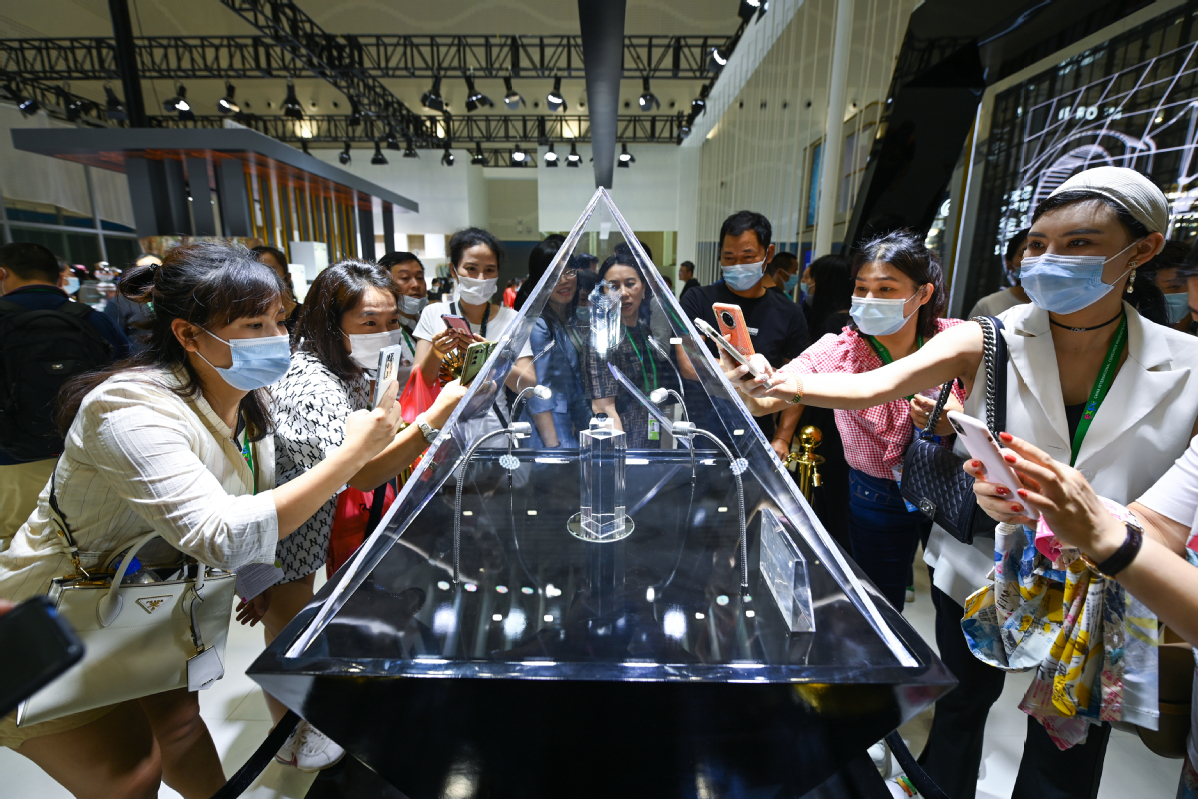Tax-free Discounts Drive Bigger Travel Expenses
Tax-free shopping in China is boosting consumer spending through a series of policies to promote retail sales, and after the industry has achieved strong growth in the past year. Industry insiders have not shy away from predicting more revenue.
During the China International Consumer Goods Fair held in Haikou. The capital of Hainan Province, brands from home and abroad launched new and exclusive products for travel retailers. Incentives such as zero import taxes and shortened negative lists are stimulating corporate optimism.
Japanese cosmetics company Shiseido will launch two high-end products-Ginza and Baum, to the Chinese market through the week-long World Expo.
Fujiwara Kentaro, CEO of Shiseido China, said that the activities and policies to promote offshore duty-free shopping. “further demonstrate China’s firm determination to expand opening up and share development opportunities.”
David Fang, vice president of Nestlé China,
said that the Swiss food and beverage giant Nestlé will launch 29 products at this event. Which “shows its continued commitment to the local market”.
Highlights include the launch of Vital Proteins, Nestlé Health Sciences’ well-known brand for fitness and nutritious foods, and Nestlé’s international travel retail business unit. Which offers a limited combination of confectionery brands and special products for travel retailers (for example, at airports). Packing and on the cruise ship.
Fabrice Megarbane, President and CEO of L’Oréal North Asia, said that the construction of the Hainan Free Trade Port represents a “significant and important step” for China to further open up, as it will help promote business development and seize opportunities in travel retail. L’Oréal China .
“It provides a great opportunity to meet consumers’ demand for quality products. As a company, we can interact with them,” Megarbane said. His company has launched several Hainan-only products under multiple brands. Duty-free package.
Last year, China raised the annual limit of zero import tariffs per passenger departing from this tropical island to 100,000 yuan ($15,548). This policy encourages Hainan tourists to spend more money when traveling.
Customs officials said that compared with the level before the 2019 pandemic,
Hainan’s tax-free spending doubled last year. In the first quarter of this year, Hainan’s duty-free sales reached 15 billion yuan. Which is expected to continue the upward trend throughout the year and beyond.
Dennis Zheng, head of the consulting firm Ernst & Young’s China Consumer Goods Industry, said: “I don’t think that digital growth is a’repressed’ demand after COVID-19. Because China has basically surpassed that (post-blockade) stage.” “High-end goods And luxury goods seem to be the most important tools to promote local consumption.”
The pursuit of quality consumption is not limited to physical goods, but a high-quality and exclusive experience. Fosun Tourism Group, which operates the high-end hotel brand Atlantis, saw the brand’s revenue increase 36% year-on-year in the second half of 2020.
Qian Jiannong, Chairman and CEO of Fosun Travel Group, said:
“Travel and shopping are inseparable and mutually reinforcing.” Our success story is the best proof that the demand for high-end products exceeds the industry average. Obviously, the tax-free model manages to shift consumption from overseas to the domestic market,” Qian said.
Carol Luk, senior manager of business development for DFS China, a global luxury travel retailer, agreed.
“We believe that customers want a different experience, want to see more high-end fashion brands, and explore more luxurious and superior customer service. So this is a combination of multiple factors,” Luk said, adding that DFS is looking for Opened four new duty-free shops in Hong Kong. Hainan in the next three to five years.
Ken Gao, a partner of the consulting firm PricewaterhouseCoopers, pointed out that the tax-free economy is essentially a year-round (rather than one-time) promotion of premium products. Which is conducive to a healthier consumption composition.
“In the long run, increasing the proportion of high-end purchases is crucial to expanding consumption,” Gao said. “What really matters is not pure high prices, but’value for money’.”
Gao pointed out that duty-free shopping seeks to provide preferential prices for first-class brands. “This is the best symbol of a’value for money’ transaction. Which is essential to the adjustment of China’s economic structure.”
Nestlé China’s party stated that the tax-free economy is promoting domestic consumption by leading a consumption model that is conducive to high-quality and popular products.
“When talking about duty-free shopping, we usually mean buying mid-to-high-end products, which are essentially ‘boutique’,” he said. “When it is easier for people to obtain duty-free goods. Furthermore, they will naturally know more leading brands and develop this habit of long-term consumption of high-quality products.”
China’s Economic Growth Slows to 8% in 2021





GIPHY App Key not set. Please check settings